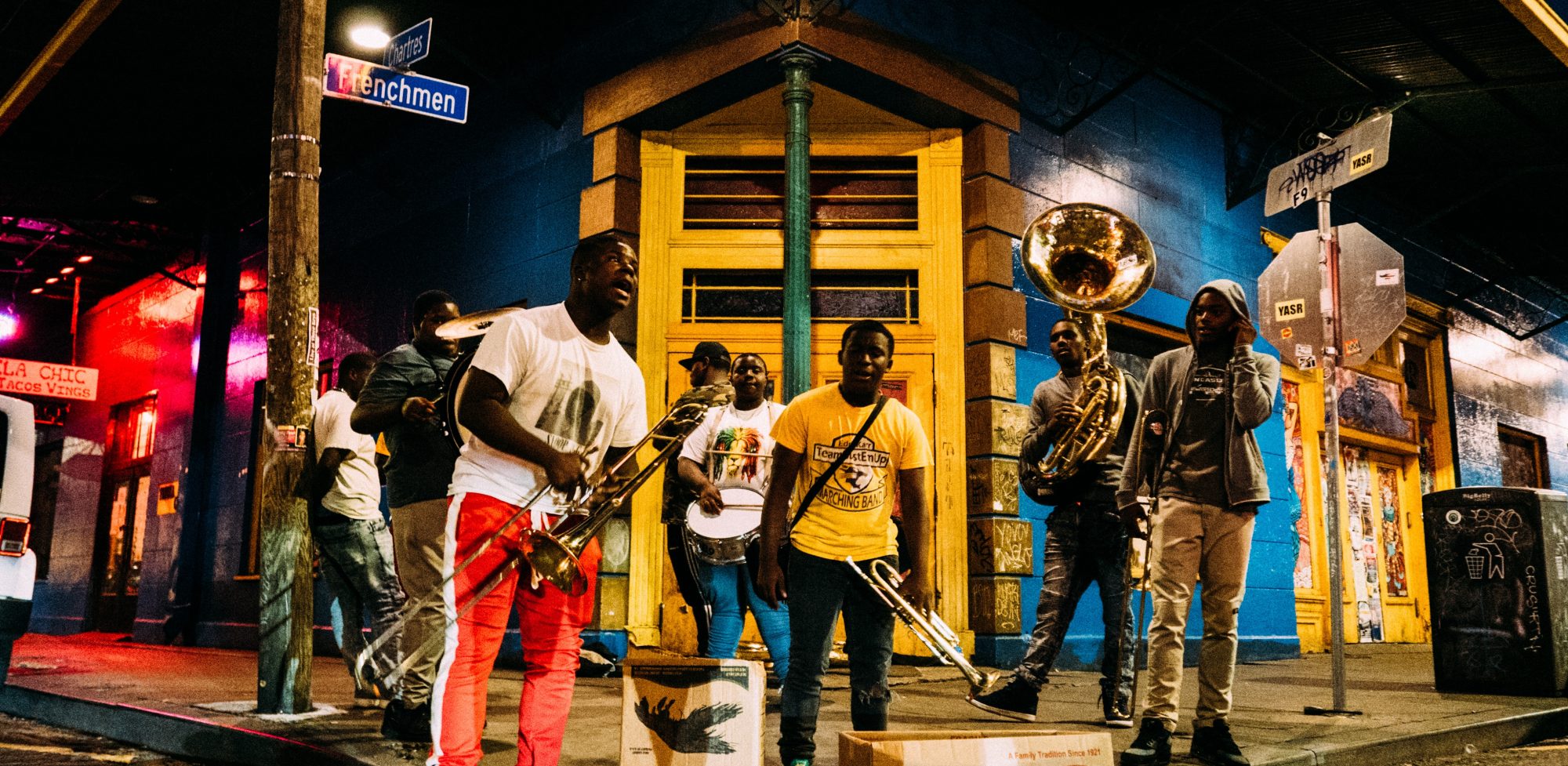Audio, Video and Print Resources on Topics Related to “What Is This Thing Called Soul”
Suggested Online Articles / Pages / Blogs
- NPR Article on Panel Discussion “On The Future of Jazz Among Black Folk” sponsored by the Congressional Black Caucus:
- Blogpost: Is Jazz Black Music? by Faye Anderson. Short and sweet, yet poignant.
https://phillyjazz.us/2015/06/09/is-jazz-black-music/
- Writer Nat Hentoff’s article titled “Is Jazz Black Music” from Jazz Times, 2008.
- Article by Andre Kimo Stone Guess summarizing an in-depth conversation with Wynton Marsalis on the topic of Jazz and Race in America
- Michael Patrick Welch’s article on Nick Larocca of the all-white “Original Dixieland Jass Band.” Larocca and his group claim to have invented jazz, and his family is disappointed by the way that both New Orleans, AND jazz music as a whole, views his “legacy” . A must read for important historical context on the foundation dynamic of race and intellectual credit in jazz music.
http://narrative.ly/jazzs-great-white-hype/
- Nicholas Payton’s controversial, yet salient blogpost “On Why Jazz Isn’t Cool Anymore”. This post has been the source of much debate over the years, and continues to fan the flames of cultural debate within “jazz” music. No sugar-coating or tongue biting goin’ on here!! A guaranteed way to get a conversation rolling among your course students!
https://nicholaspayton.wordpress.com/2011/11/27/on-why-jazz-isnt-cool-anymore/
Suggested Video Resources
- “The New Urban Aesthetics: The Black Arts Movement, Revised” was a panel at the 2014 Harlem Book Fair from the Langston Hughes Auditorium in the New York Public Library’s Schomburg Center for Research in Black Culture
https://www.c-span.org/video/?320332-7/panel-discussion-black-arts-movement#
- Panel discussion on “Jazz and Race” at the 2018 Jazz Congress in NYC https://vimeo.com/250940249
Recommended Resources in Print
Notes and Tones is one of the most controversial, honest, and insightful books ever written about jazz. As a black musician himself, Arthur Taylor was able to ask his subjects hard questions about the role of black artists in a white society. Free to speak their minds, these musicians offer startling insights into their music, their lives, and the creative process itself. Notes and Tones consists of twenty-nine no-holds-barred conversations which drummer Arthur Taylor held with the most influential jazz musicians of the ’60s and ’70s
- Book: Keeping Time: Readings in Jazz History, ed. by Robert Walser
Featuring more than seventy thought-provoking selections drawn from contemporary journalism, reviews, program notes, memoirs, interviews, and other sources, Keeping Time: Readings in Jazz History, Second Edition, brings to life the controversies and critical issues that have accompanied more than 100 years of jazz history. This unique volume gives voice to a wide range of perspectives which stress different reactions to and uses of jazz, both within and across communities, enabling readers to see that jazz is not just about names, dates, and chords, but rather about issues and ideas, cultural activities, and experiences that have affected people deeply in a great variety of ways. The chapters/articles from music and cultural critic Stanley Crouch and Max Roach’s “Beyond Categories” are a MUST READS!
- Book: “Blues People” by Amiri Baraka
Plainly put, this is a MUST READ BOOK in the cultural study of Black music. “The path the slave took to ‘citizenship’ is what I want to look at. And I make my analogy through the slave citizen’s music — through the music that is most closely associated with him: blues and a later, but parallel development, jazz… [If] the Negro represents, or is symbolic of, something in and about the nature of American culture, this certainly should be revealed by his characteristic music.” So says Amiri Baraka in the Introduction to Blues People, his classic work on the place of jazz and blues in American social, musical, economic, and cultural history. From the music of African slaves in the United States through the music scene of the 1960’s, Baraka traces the influence of what he calls “negro music” on white America — not only in the context of music and pop culture but also in terms of the values and perspectives passed on through the music. In tracing the music, he brilliantly illuminates the influence of African Americans on American culture and history.
